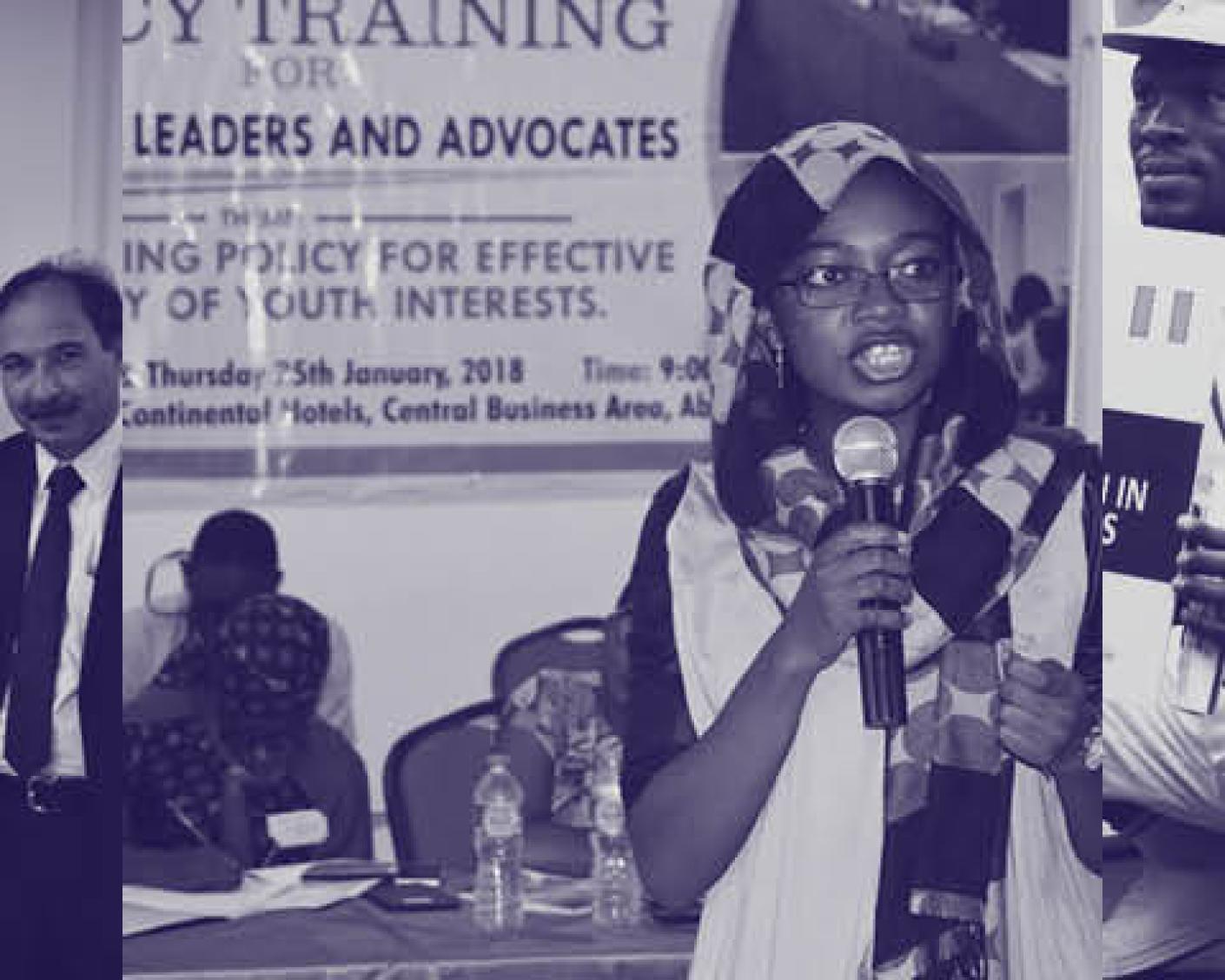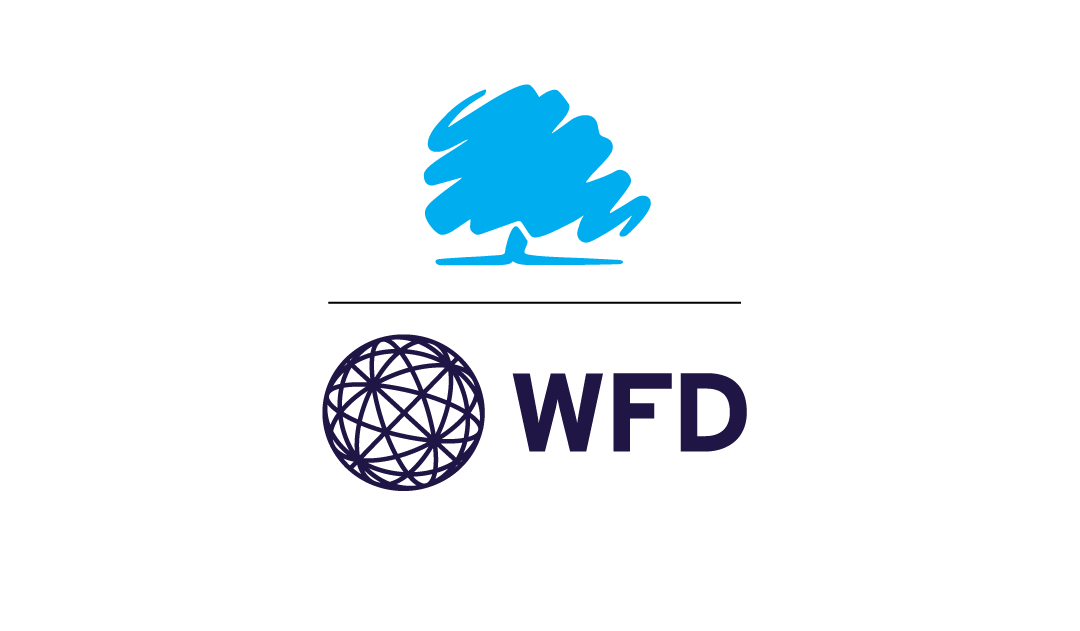
- Sharing best practice and facilitating open communication
- Encouraging more accountable and inclusive political systems
- Promoting effective, transparent, and robust democratic institutions
- Fostering the protection of freedoms and rights of all, and the rule of law
What we focus on
The UK’s commitment to being a force for good in the world – defending openness, democracy, and human rights – serves as a beacon to guide the work of the Conservative WFD programme.
Our WFD programme reflects the UK Government’s Global Britain priorities and aims to increase the involvement of under-represented groups - including women, persons with disability, and youth - in politics. We also work with parties in these regions on Environmental Democracy best practices.
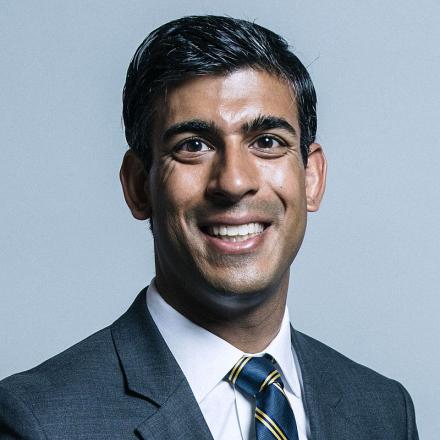
“For over thirty years, Westminster Foundation for Democracy has led the global fight to strengthen democratic governance. Operating in over two dozen countries, WFD serves as an important bridge connecting the best minds in British political life with their global counterparts to share best practice and build democratic capacity.
I am proud to reaffirm the Conservative Party’s commitment to WFD and the work being conducted with our sister parties. In a global arena where democratic values are increasingly under stress, WFD stands as a proud statement that the values of fairness, openness and inclusion are not only those of this country, but of all people who strive for a better future."
– Rt. Hon. Rishi Sunak MP, Prime Minister and Leader of the Conservative Party
Our programmes
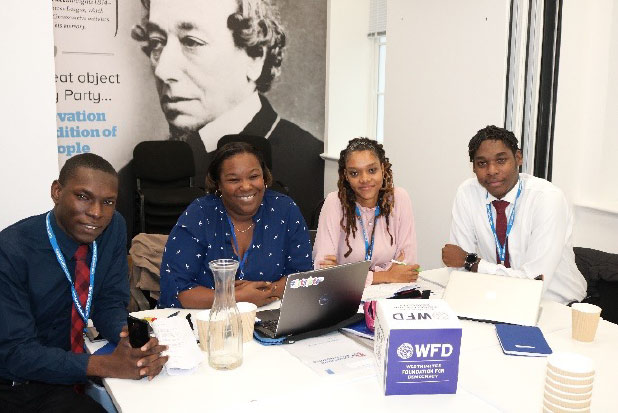
Caribbean Training Hub
Background
Our programme is working for more inclusive democracy with the Caribbean Democrat Union.
In the Caribbean, the Conservative’s WFD Programme works to improve the representation of women and youth in political spaces and supports policy development through research. We also work to improve environmental democracy across the Caribbean.
We engage with nine countries and ten centre-right political parties in the Caribbean through the Caribbean Democrat Union (CDU) Network; including with Anguilla, Belize, Dominica, Grenada, Jamaica, St. Kitts and Nevis, St. Lucia, St. Vincent and the Grenadines and Turks and Caicos Islands.
We have seen a major increase in women’s political representation in Jamaica and an increase in women standing for elections within the network overall.
Our programme also provides technical support to the CDU’s youth network (CYDU) in efforts to address youth voter apathy. Following previous successful youth voter campaigns, we are currently conducting a youth voter registration drive in Jamaica to boost youth registration and encourage participation.
Ground-breaking number of women in Jamaican Parliament
As part of the Conservative WFD Programme’s work to support women’s political leadership; the Jamaica Labour Party (JLP) along with other centre-right parties signed a pledge at the Caribbean Democrat Unions’ Annual General Meeting in January 2019.
They pledged to "deliver and promote inclusive and effective governance to our people through greater transparency and accountability, improved policy making and delivery, increased participation of our women and youth, effective representation and free and fair elections."
The leader of JLP and Prime Minister of Jamaica, Andrew Holness took this pledge on board and committed his party to increasing women's political participation. The JLP fielded 18 women candidates in the 2020 general election, the most of any political party in the history of Jamaica. 14 of 18 won their seats achieving a historically high percentage of women elected Representatives in the Jamaica House of Parliament. The JLP won a total of 49 seats. 18 women in total from all political parties won seats at the election.
Post-election, the Prime Minister of Jamaica said “Through the Caribbean Democrat Union, the Conservative Party has done significant work in the region as it relates to women’ empowerment and we anticipate continued work and partnership in this regard”
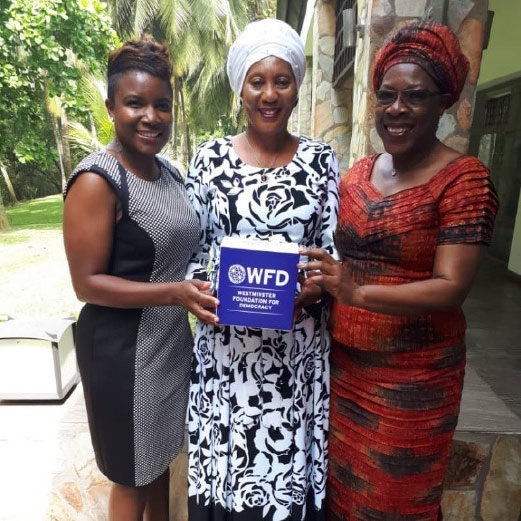
African Commonwealth Hub
Background
The International Department of the Conservative Party works in Africa to deliver trainings and capacity building activities to 11 parties coming from 10 countries.
In Africa, the Conservative Party WFD Programme delivers capacity building training on environmental democracy, women’s political leadership, and youth inclusion to center-right parties on the African continent and engages with people from all demographics and genders.
We engage with 10 countries including: Angola, Ghana,Kenya, Malawi, Mozambique, Morocco, Namibia, Nigeria, South Africa, Tanzania.
Last year, we delivered training sessions to 11 African political parties and have celebrated several successes through our programme’s activities.
Completed programmes
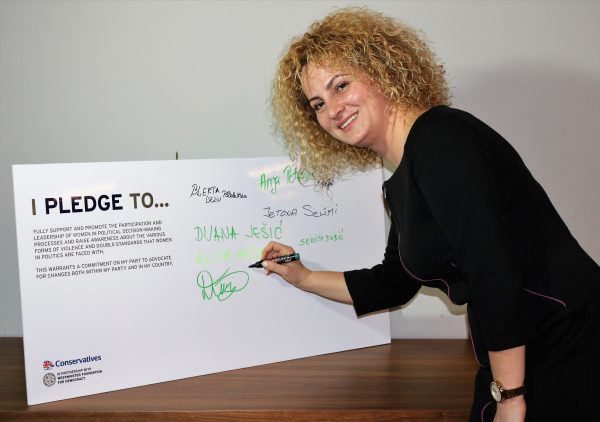
Western Balkans Network
Promoting the political participation of persons with disabilities in the Western Balkans
In the Western Balkans, the Conservative Party WFDPprogramme works with parties to develop party structures that facilitate the inclusion of persons with disabilities.
In 2021 we launched a persons with disabilities (PWD) handbook. Based on international standards, the handbook is a practical resource for countries in the Western Balkans to strengthen the ability of political parties and parliaments to engage and empower persons with disabilities in political processes.
The handbook is supporting parties who are adapting their internal structures to be more inclusive to Persons with Disabilities.

UPLA Latin American Women’s Network
In Latin America, the Conservative Party WFD programme promoted women’s political leadership by facilitating the establishment of a women’s network within the Union of Latin American Parties (UPLA). The network was created to support and boost women’s political participation and leadership, as well as their access to political decision-making positions. In 2019, the network, supported by the Conservative Party WFD programme, launched a campaign to raise awareness about violence against women in politics.
As a result of strong collaboration among members of the Women's Network, Colombia’s Conservative Party became the first party in Colombia to introduce a protocol to prevent and eradicate political violence against women.
Three bills that tackle violence against women in politics were presented by legislators who are members of the network in Honduras, the Central American Parliament (PARLACEN) and Colombia.
We worked with parties in Latin America to launch a manual that will help political parties in Latin America to prevent Violence Against Women in Politics (VAWP). The manual analyses the causes of VAWP and proposes tools for prevention and eradication.
Stories
Women's Inclusion in Party Politics in Africa
We launched a report which explores the situation of women’s political participation in ten African countries.
With the aim of improving the gender-balanced policies and practices of political parties in the African region, the Conservative Party commissioned research to document the situation of women’s political participation in ten African countries: Angola, Ghana, Kenya, Malawi, Morocco, Mozambique, Namibia, Nigeria, South Africa and Tanzania.
The webinar presented the "Women's Inclusion in Party Politics in Africa" Research. This event was a unique opportunity to share best practices and hear from MPs coming from the UK, from Tanzania and many other places in Africa.
Moderated by David Mbae - Policy Advisor Southern Africa, Media and Political Parties Sub-Saharan Africa, KAS. With speakers Nickie Aiken MP, UK, Hon. Josephine Lemoyan, MP, Tanzania and Bunmi Dipo-Salami, Researcher
Promoting the political participation of persons with disabilities in the Western Balkans
In the Western Balkans, the Conservative Party WFD programme worked with parties to develop party structures that facilitate the inclusion of persons with disabilities.
In 2021 we launched a persons with disabilities (PWD) handbook. Based on international standards, the handbook is a practical resource for countries in the Western Balkans to strengthen the ability of political parties and parliaments to engage and empower persons with disabilities in political processes.
The handbook is supporting parties who are adapting their internal structures to be more inclusive to Persons with Disabilities.
Tackling Violence Against Women in Politics in Latin America
In Latin America, the Conservative Party WFD programme promoted women’s political leadership by facilitating the establishment of a women’s network within the Union of Latin American Parties (UPLA). The network was created to support and boost women’s political participation and leadership, as well as their access to political decision-making positions. In 2019, the network, supported by the Conservative Party WFD programme, launched a campaign to raise awareness about violence against women in politics.
As a result of strong collaboration among members of the Women's Network, Colombia’s Conservative Party became the first party in Colombia to introduce a protocol to prevent and eradicate political violence against women.
Three bills that tackle violence against women in politics were presented by legislators who are members of the network in Honduras, the Central American Parliament (PARLACEN) and Colombia.
We worked with our parties in Latin America to launch a manual that will help political parties in Latin America to prevent Violence Against Women in Politics (VAWP). The manual analyses the causes of VAWP and proposes tools for prevention and eradication.
Ground-Breaking Number of Women in Jamaican Parliament
As part of the Conservative WFD Programme’s work to support women’s political leadership; the Jamaica Labour Party (JLP) along with other centre-right parties signed a pledge at the Caribbean Democrat Unions’ Annual General Meeting in January 2019.
They pledged to "deliver and promote inclusive and effective governance to our people through greater transparency and accountability, improved policy making and delivery, increased participation of our women and youth, effective representation and free and fair elections."
The leader of JLP and Prime Minister of Jamaica, Andrew Holness took this pledge on board and committed his party to increasing women's political participation. The JLP fielded 18 women candidates in the following 2020 general election, the most of any political party in the history of Jamaica. 14 of 18 won their seats achieving a historically high percentage of women elected Representatives in the Jamaica House of Parliament. The JLP won a total of 49 seats. 18 women in total from all political parties won seats at the election.
Post-election, the Prime Minister of Jamaica said “Through the Caribbean Democrat Union, the Conservative Party has done significant work in the region as it relates to women’s empowerment, and we anticipate continued work and partnership in this regard”
AskHertoStand in Belize bolsters candidates
Following the Conservative Party WFD Programme’s #AskHertoStand campaign, we are proud to celebrate the success of a participant in our Caribbean programme who stood as a candidate in the Belize municipal elections in March 2021. Anazette credits her decision to stand to the skills she learned on the capacity building training offered by our programme.
Our participant, Anazette said:
“The Conservatives WFD Programme's work with the CDU Network has contributed significantly to my personal and political development and has built my leadership capacity in order to stand for municipal elections in Belize”
Women’s political leadership in Africa: The Conservative Party WFD Programme
Our work in 2020-21 has supported women to become more politically active. Inna Hengari, a participant in our training sessions, won a seat in the National Assembly. She is putting her skills into action as the youngest woman parliamentarian in Namibia. Hengari said:
“The training for me was more than just classroom interaction, it also inspired me to stand for office”.
The programme also offered trainings and roundtables on stopping violence against women in politics. Following these sessions, a Tanzanian MP was inspired to table a motion in parliament that would require political parties in East Africa to mainstream mechanisms for addressing gender-based violence in political parties.
